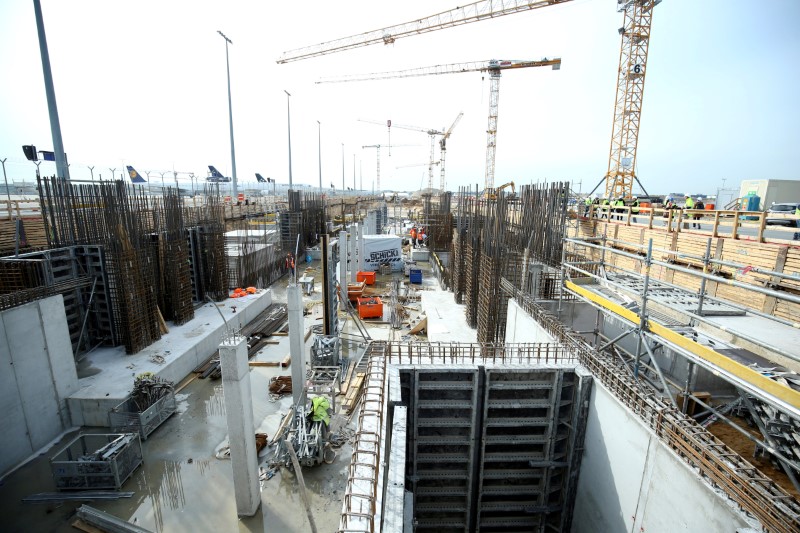FRANKFURT (Reuters) - The German economy is expected to have grown last year at the slowest pace since the euro zone's debt crisis, hit by a slowdown in exports that was only partly compensated by domestic strength, the country's central bank said on Monday.
Germany, Europe's export powerhouse, is bearing the brunt of an economic slowdown in China and a global trade war initiated by U.S. President Donald Trump's administration.
The Bundesbank estimates the German economy expanded by just 0.6% last year, which would make it its worst year since 2013, when the euro zone was only starting to emerge from a debt crisis that almost brought down the euro.
Manufacturing activity, Germany's forte in the recent boom years, "declined strongly and in a broad range of sectors" as exports and capital investments suffered, the Bundesbank said.

On the upside, the services sector and construction continued to boom, the German central bank added.